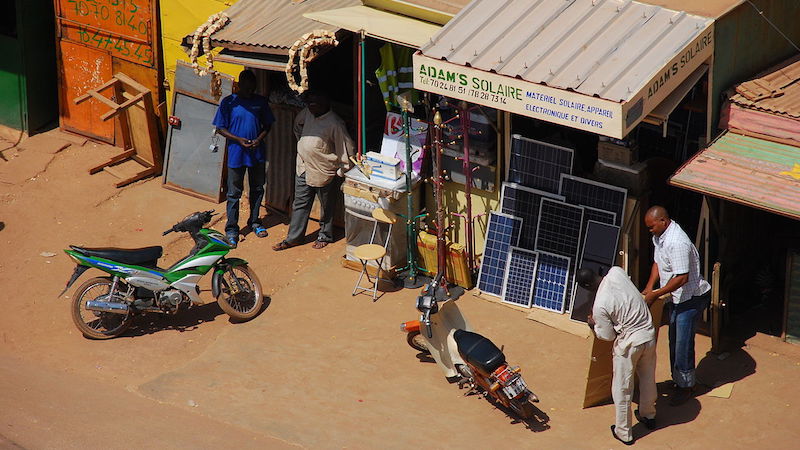In the race to electrify Africa, wealthy governments and donors are ignoring the cheapest ways to reach the continent’s most remote communities, according to a Dutch government report.
In sub-Saharan Africa, more than 600 million people live without power. In 2015, UN countries signed up to a commitment to make electricity accessible to every household on earth by 2030.
Switching the lights on across the world’s poorest continent, a report by the Netherlands government’s Environmental Assessment Agency said, would require an extra $9-33bn in investment each year until 2030.
Private and public investors are expected to pour large amounts of money into African projects across the next 15 years. In a continent that is becoming rapidly more wealthy and demanding better electricity services, business opportunities are vast.
In order to ensure that electricity becomes truly universal in Africa, a major shift is needed in the type of projects that are currently financed by donor governments and development banks, the report said.
Private investment tends towards wealthier customers and larger projects. But that risks leaving large sections of Africa behind.

(Source : PBL Netherlands Environmental Assessment Agency)
For villages far from existing grids, or very poor communities that can only pay small premiums, or sparsely populated areas with only a few potential consumers, the best option is often off-grid solar or wind or a mini-hydro plant in a stream.
Distance to the existing grid is a critical factor in determining the best approach for electrifying any community because of the cost of building transmission lines – between $5,000 and $28,000 per kilometre depending on the voltage.
Depending on how Africa’s economy grows, and how wealthy rural consumers become, off-grid renewable electricity could be the lowest cost option for connecting more than one fifth of the Africans who will gain access in the coming years (if universal access is achieved), the report said.
Weekly briefing: Sign up for your essential climate news update
But rich country governments often measure the success of financing initiatives by the amount of additional money their investment draws in. This leads them to favour large projects that generate big returns. These projects won’t reach villagers living 500km from the nearest transmission cable in the Democratic Republic of the Congo.
“Public finance can reduce these risks and thereby attract additional sources of private finance, as well as fill in the funding gaps that the private sector cannot reach, such as very poor populations who cannot afford to pay a commercial rate for energy services. This is especially the case for many off-grid electrification projects,” said the report, which was released on Monday.
“Distributed energy is the quickest and cheapest pathway to securing energy access for those living in rural areas,” Rachel Kyte, the UN secretary-general’s special representative for sustainable energy access told Climate Home. “Governments must put closing the access gap at the heart of integrated energy planning. That means – as the report notes – embracing off-grid in regulation and more patient finance.”
Report: EU, France accused of hijacking ‘Africa-led’ clean energy scheme
The issue featured in a recent row between African renewable energy proponents and European countries after donors were accused of hijacking a $10bn clean energy scheme. One complaint from African civil society was that projects chosen by Europeans for the scheme had been predominantly large-scale, ignoring the need to focus on “decentralised” power.
In an interview with Climate Home, former French environment minister Ségolène Royal, who has been deeply involved in the project, admitted that the focus needed to shift to small projects.
Monday’s report, coming from a European government, will provide fuel for those arguing for an investment strategy for Africa that focuses public money on more difficult, smaller scale projects.
The report also looked at the effect that total electrification would have on Africa’s carbon emissions. As well as a boom in renewable energy, fossil fuel use is also predicted to increase.
Overall CO2 emissions from sub-Saharan Africa’s residential sector will rise between 0.2% and 27% by 2030, the report found. The final amount would still be “negligible” said the report, accounting for 0.2% or less of global emissions from electricity.
